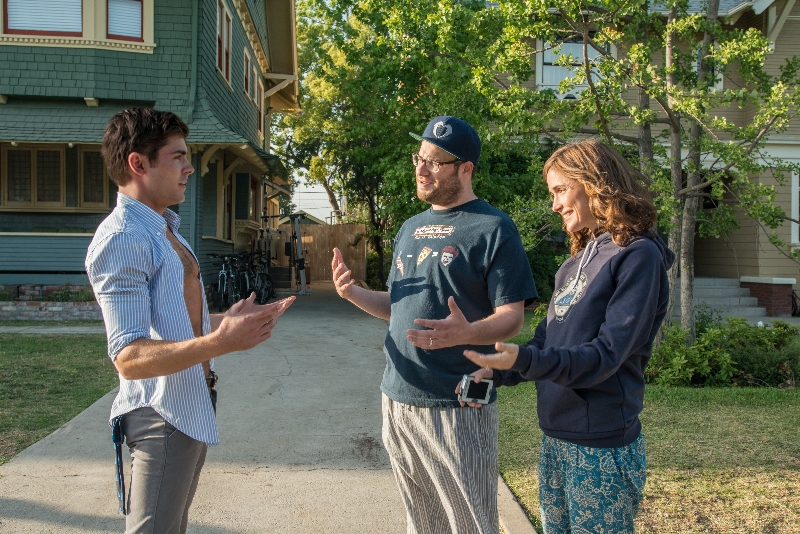The advent of the internet has made available an infinite range of information to tourists and the web, along with new technologies, has undoubtedly revolutionized the way we travel.
Big internet portals like Tripadvisor and popular social media like Facebook and Twitter assist travelers in gathering information, guide them in their choices through reviews and opinions about travel-related content and often engage them in interactive forums.
Furthermore, it’s undeniable that in terms of shareability and advertising, the power of an instagram photo goes far beyond that of any postcard (are they still printing them, anyway?). On top of it all, modern web influencers play a key role in the choice of the location to visit and almost all travelers share and comment their journeys live with their smartphones. This explains why connectivity is such an important element and the demand for wi fi is so widespread and essential.
Thanks to web based tools and translation apps, language barriers have also fallen so communication between travelers has no borders anymore.
A growing number of tourists is flying now around the world and the number of services they’re buying through smart devices is growing exponentially.
Tourism globalization: a big problem
According to the UNWTO (World Tourism Organization), by 2030 worldwide international tourist arrivals will amount to 1.8 billion with an average annual increase of 3.3%, while in 2000, the global number of travellers was only slightly over 677 million.
A steady growth that, despite its negative moments, has been able to overcome the psychosis of terrorist attacks and which certainly encourages the tourism industry. However, the future seems to open unprecedented scenarios for stakeholders and hospitality operators, but the real challenge will be to make this huge mass movement sustainable, keeping in mind the logic of capacity and capability of tourist destinations in order to avoid destination defacement and community conflicts.
Mass tourism is transforming into overtourism, a word that the travel industry is dealing with more and more everyday. The most extreme examples are the Amsterdam case (where the mayor has blocked any new gift or fast-food shop), the Venice case (where protesters have prevented cruiseships from entering the lagoon) and the Barcelona case, where the mayor Ada Colau has ordered the closure of 256 illegal tourist apartments and has imposed a fine of 60 thousand euros to the portals HomeAway and Airbnb and also where, due to exasperation, the locals have come to physically attack tourists.
These extreme cases have pushed the hospitality industry insiders to seriously consider dealing with this issue and findind a way to mitigate the disproportionate increase of visitors.
With his written contribution in the book “Città, Turismo e comunicazione globale” (“City, Tourism and Global Communication”) Professor Asterio Savelli, a sociologist of tourism at the University of Bologna, has skillfully depicted the major problems of mass tourism:
“Tourism is characterized by deep contradictions between supply and demand between authenticity and commodification, between local and global”.
Towards sustainable tourism: the Wonderful Copenhagen case
In a planet turning smaller every day, dealing with the increasing demand for travel is a tricky matter, but nevertheless, there is a destination marketing organization that seems to have given the right answer to it. Wonderful Copenhagen, the official tourism organization of the Capital Region of Denmark, launched its new e-tourism campaign sending to travel partners a virtual postcard titled “The end of tourism as we know it” and subtitled “Localhood for everyone”.
As Bjarke Hjorth, Head of Digital Marketing for Wonderful Copenhagen, said at the 13th Rencontres Nationales du etourisme held last October at the Palais des Congrès de Pau in the French region of New Aquitaine:
“We coined the word Localhood because we want to connect the global with the local. Our mission is enabling our destination to be shared more, this sharabity is very closely linked to social media, which I think at this point nobody can ignore”.
For Wonderful Copenhagen, the concept of Tourist Marketing we are used to has become obsolete and it is through overcoming the clichés that it will be possible to propose a ‘sustainable’ tourism:
“A traveler is all kinds of humans. We need to get out of our illusion that the traveler is a certain thing. I think travelers have so many different varieties of interests and there’s no common denominator for what a traveler today is” he continues “The cliché of tourists walking around with a camera taking photos, of this castle, of this bridge, of this plate of food.. I consider it superficial to describe a tourist like that. I think tourists are all kind of different people, have different sensibilities, different intersts, some of them are foodies, some of them are adventure travelers, some of them come to our destination just to take picture of themselves, that’s ok too”.
The concept of localhood transforms the inhabitants of Copenhagen into the attraction itself, an innovative vision that is much more authentic:
“When we are going on holiday we want to be as close as possible to the lifestyle of the locals. The idea is to transform the locals into the attraction itself. We all have something to share as locals”.
As Bjarke Hjorth said, another important aspect of Localhood is Liveability:
“The city should be liveable for everyone, the travelers and the locals. It should be designed for life and be a pleasant place to live. Livebility, sustainability and city design for life can be all attractions in theirself. Localhood is what we share”.
By advertising these aspects, Wonderful Copenaghen has gone away from just promoting points of interest, attractions and restaurants, focusing on the uniqueness of city life and atmosphere, as they believe this will soon be a global trend.
Summing up, new technologies have transformed tourism in an uncontrollable and growing global phenomenon so what is really needed now to face its mass effects and harmonize its dynamics with local communities are not global marketing campaings anymore but smart strategies aiming to deflate overtourism dynamics and harmonize travelers’ experience with local realities.
This is exactly what Wonderful Copenhagen did!







